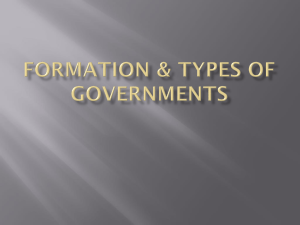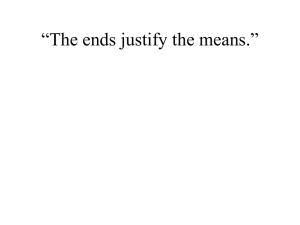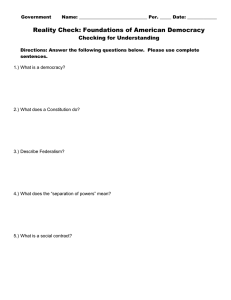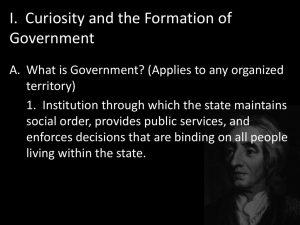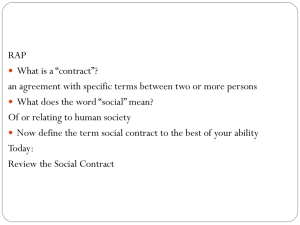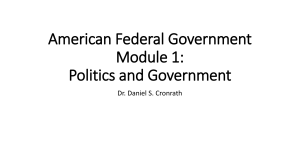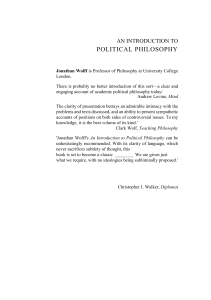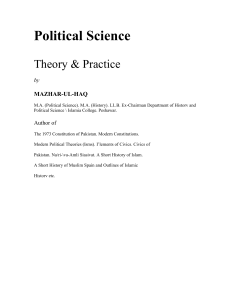Foundations of Government Government
advertisement
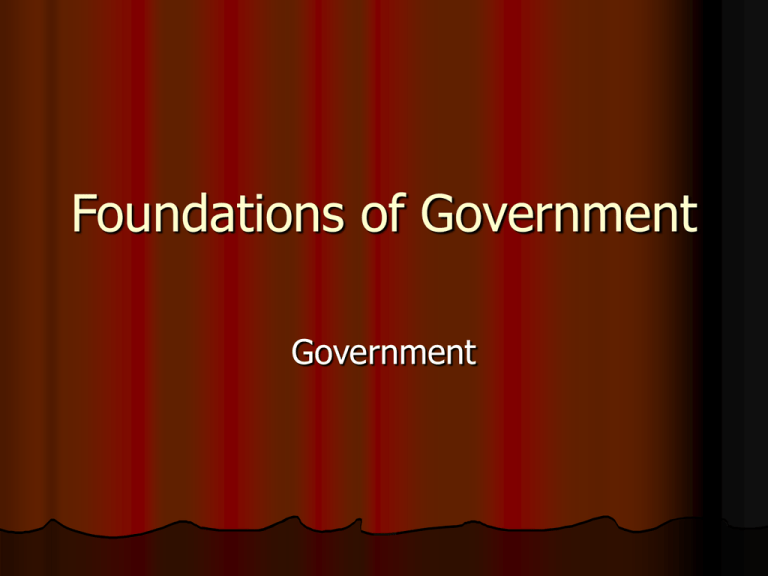
Foundations of Government Government Monarchy Absolute power with one person or a small group with hereditary rule. Dictatorship Autocratic form of government. Government is ruled usually by one person, or a group with absolute power. Theocracy God or deity is state’s supreme ruler. Leaders act in accordance with God’s will – divine guidance Oligarchy Power rests with a small group of elite people. Usually royal, wealthy or having military power. Parliamentary Government Executive branch is drawn from the legislature – prime minister Unitary Government Sovereignty is in the central government Proportional Plan Percentage of votes that a group’s candidates obtain in the elections is close to the percentage of seats in Legislature they receive. Democracy Power is derived from the people by direct democracy or by representatives chosen by the people Representative Government Elected individuals represent the people. Republic People or some portion of the population retain supreme control over the government. – No monarch Direct Democracy People are sovereign. People make all the decisions in government by voting. Separation of Powers State is divided into branches – each are separate and independent powers and have different areas of responsibility Rule of Law No one is immune to the law, even a king. Civic Virtue Habits of personal living that are important to the success of the community. Social Contract People form states to maintain social order. Consent of the governed Hobbes, Locke, Rousseau Natural Rights Rights all people should have. Universal Life, Liberty, Property Greek Guy First Known democracy. City-state of Athens Direct Democracy Citizenship – adult males that completed military training No Slaves, Women or Children Roman Guy Republic Senate made decisions To be in the Senate – land, aristocrat and had to be approved John Locke Social Contract Theory Influenced by Rousseau Influences Thomas Jefferson Life, Liberty, Health, Possession Charles de Montesquieu Separation of Powers Executive, Legislative, Judicial No Power exceeds the other Thomas Jefferson Writer of the Declaration of Independence. Influenced by Locke and Rousseau Social Contract Theory Life, Liberty, Pursuit of Happiness.

